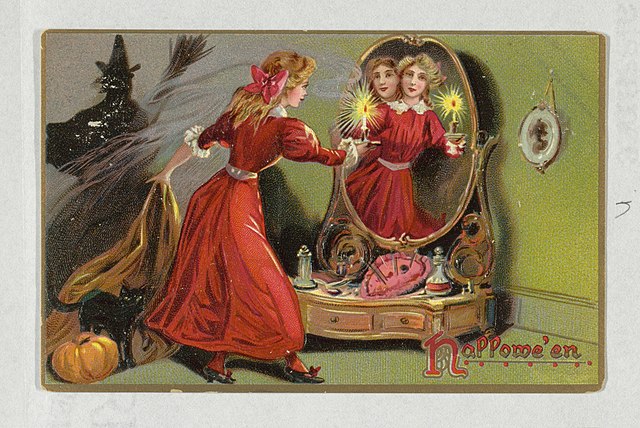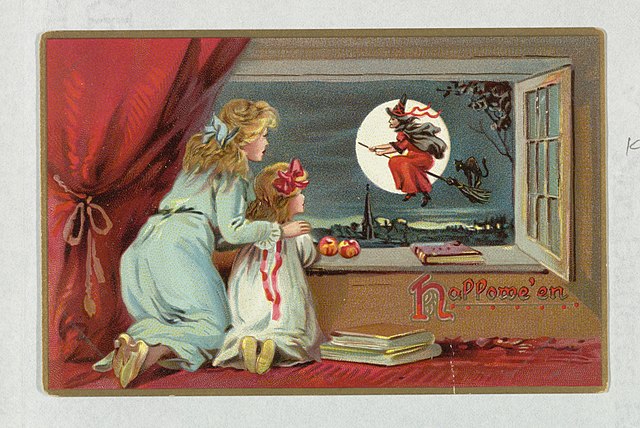
To commemorate Halloween this year on October 31, Thammasat University students are welcome to sample some of the books and films in the TU Library collection on the subject of horror.
The reason why some people enjoy the horror genre has been studied by researchers, including Associate Professor Haiyang Yang of the Johns Hopkins Carey Business School, Johns Hopkins University, Baltimore, Maryland, the United States of America and Assistant Professor Kuangjie Zhang of Nanyang Business School, Nanyang Technological University, Singapore.
Their results about The Psychology Behind Why We Love (or Hate) Horror concluded:
Research suggests that we must possess a psychological “protective frame” to be able to derive pleasure from being horrified. There are three different categories of such frames.
1) We need to believe that we are physically safe — a safety frame. For example, although the evil entity in a movie might be committing terrifying acts in front of our eyes, we can derive pleasure from the horror as long as we believe that the evil entity is physically distant from us and hence cannot cause harm to us. If, however, we start to believe that the evil entity is coming out of the screen to hurt us, then the experience will no longer be fun.
2) The second category of protective frame involves detachment — whether we can psychologically detach from a horror experience. When we see a psychotic murderer chasing down a bloodied victim in a film, we can activate psychological detachment by reminding ourselves that they are just actors, and great acting is what is happening on the screen.
3) The third category of protective frame involves our confidence in controlling and managing the dangers we encounter. If we visit a haunted house, for instance, and a realistic-looking, blood-thirsty zombie charges at us, we can still derive pleasure from the encounter if we feel confident about overcoming the danger. (“We can easily outrun that slow zombie!”)
Research suggests that the absence of any of these psychological protective frames in the moment reduces the preference for horror consumption, which may explain why some people stay away from spooky movies, books, or events.
Who loves horror more?
There are notable individual differences in how much we are attracted to consuming horror.
Some research indicates that people with a higher sensation-seeking trait (i.e., a stronger need for experiencing thrill and excitement) tend to seek out and enjoy horror-related experiences more. Those with a lower sensation-seeking trait may find those experiences unpleasant and avoid them. Relatedly, the trait of openness to experience (or the need to engage in imaginative activities) is also a predictor of horror consumption — a stronger openness to experience trait is associated with increased affinity towards horror.
In addition, individual differences in empathy are associated with enjoyment of horror. Those who are not so empathic can enjoy horror more. This is because those with a higher level of empathy tend to feel more negatively about the distress situations others experience, like people being tormented by a devious murderer in a film.
Gender and age also appear to matter. One survey found that, on average, younger individuals tend to be more attracted to this scary genre; men are more likely to be fans of horror than women; and women versus men may like different aspects of a horror experience. That is, women may enjoy a horror movie more when it offers a happy ending (e.g., the evil entity ends up destroyed), whereas men may enjoy a horror movie more when it is loaded with intensely terrifying acts.
Lastly, through our research — which analyzed movie box office data of 82 countries — we discovered that the preference for consuming horror may differ across the stages of economic development. We found that individuals from countries with a higher GDP per capita consumed horror movies to a greater extent, but the same pattern was not observed for other movie genres such as romance. The results of our subsequent studies suggest that this pattern occurred because lacking financial resources can degrade the psychological protective frame needed for horror enjoyment.
Beyond the pleasure we get from the scary entertainment, consuming horror may yield a few hidden benefits:…
Conduit for social bonding: Consuming horror in a group is a great way to bond and connect with our friends and family. Research suggests that such bonding is linked to oxytocin, which is often released when we are in frightening situations. This hormone facilitates feelings of closeness and affinity among the group members. (Maybe, it’s time to test this out with a horror night with your teammates!)
Post-horror relaxation: While we feel highly stimulated during a horror experience, a sense of relief arrives after a positive conclusion of the experience (e.g., the evil entity gets obliterated), triggering the release of endorphins in our brain. This group of peptides can make us feel relaxed and refreshed.

Researchers at the University of Southern California revealed that
being petrified can be exhilarating and addictive, said Irving Biederman, a specialist in cognitive neuroscience and the Harold W. Dornsife Professor of Neuroscience at the USC Dornsife College of Letters, Arts and Sciences.
“We like novelty, something that departs from our everyday experience,” he said. “Some of the attraction of being scared comes from the deviation of having a new experience that we know is safe.”
A flood of fear paired with the relief of safety can release naturally occurring opioids like endorphins that signal pleasure, along with a hit of dopamine, a chemical linked to the brain’s reward center.
Young children can get especially excited because they don’t yet grasp that a haunted attraction or a creepy movie are just make-believe, Biederman said.
“Your amygdala will give you a fear response, an avoidance response to stay away from something that is legitimately frightful,” he said. “So, for a child, going to one of these haunted houses could be truly scary.”
That might explain why slasher films and scary stories are primarily geared toward people in their late teens and early 20s, said Tok Thompson, an associate professor of anthropology and communication at USC Dornsife.
The transition to adulthood, Thompson said, is “an interesting phase of life in which people are establishing their belief system. They are away from their parents and are often trying to test themselves, to figure out what scares them.”

Dr. Margee Kerr, an American sociologist who teaches at Robert Morris University in Moon Township, Pennsylvania, the United States of America, has stated:
One of the reasons people love Halloween is because it produces strong emotional responses, and those responses work to build stronger relationships and memories. When we’re happy, or afraid, we’re releasing powerful hormones, like oxcytocin, that are working to make these moments stick in our brain. So we’re going to remember the people we’re with. If it was a good experience, then we’ll remember them fondly and feel close to them, more so than if we were to meet them during some neutral unexciting event.

(All images courtesy of Wikimedia Commons)
